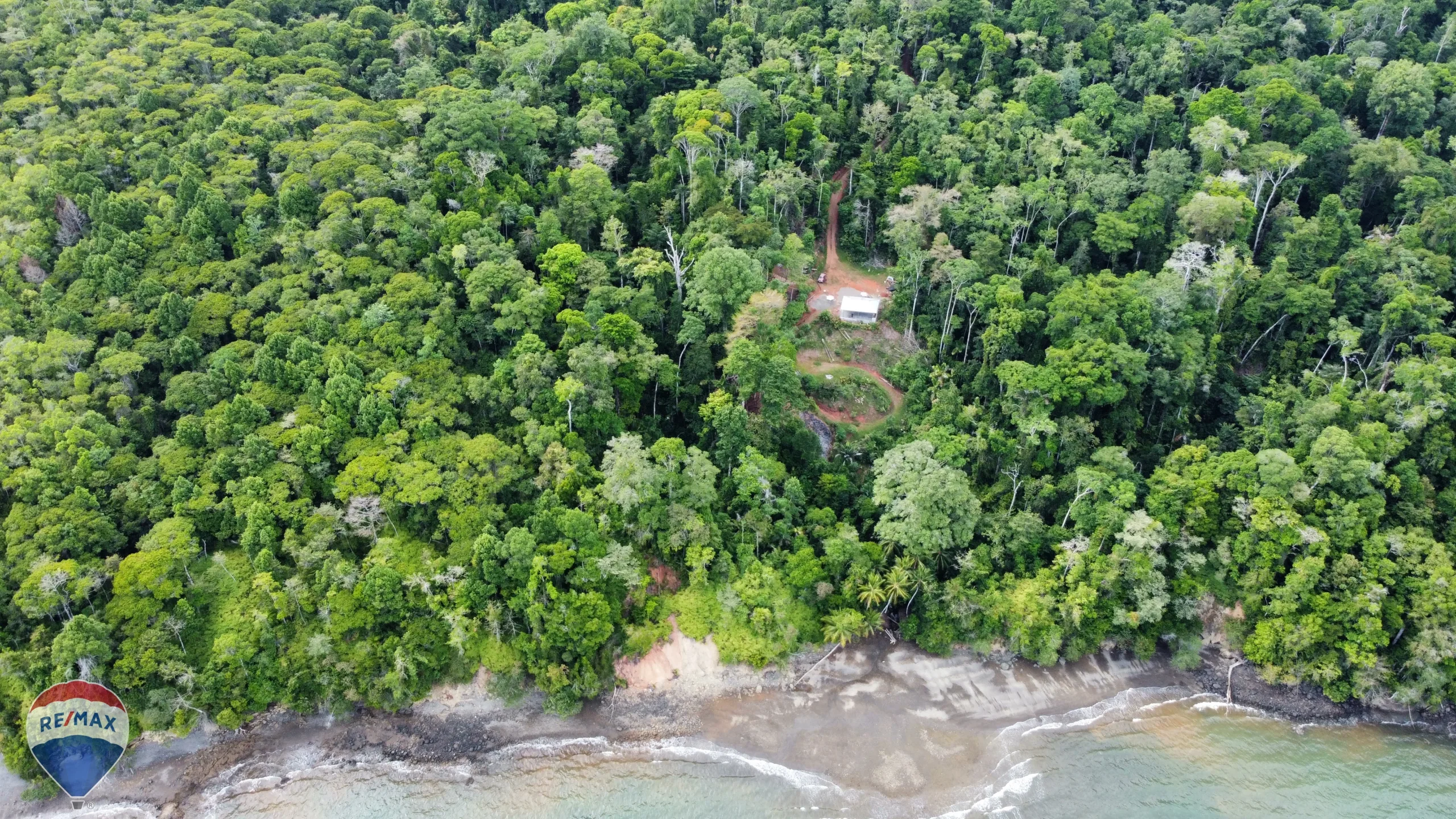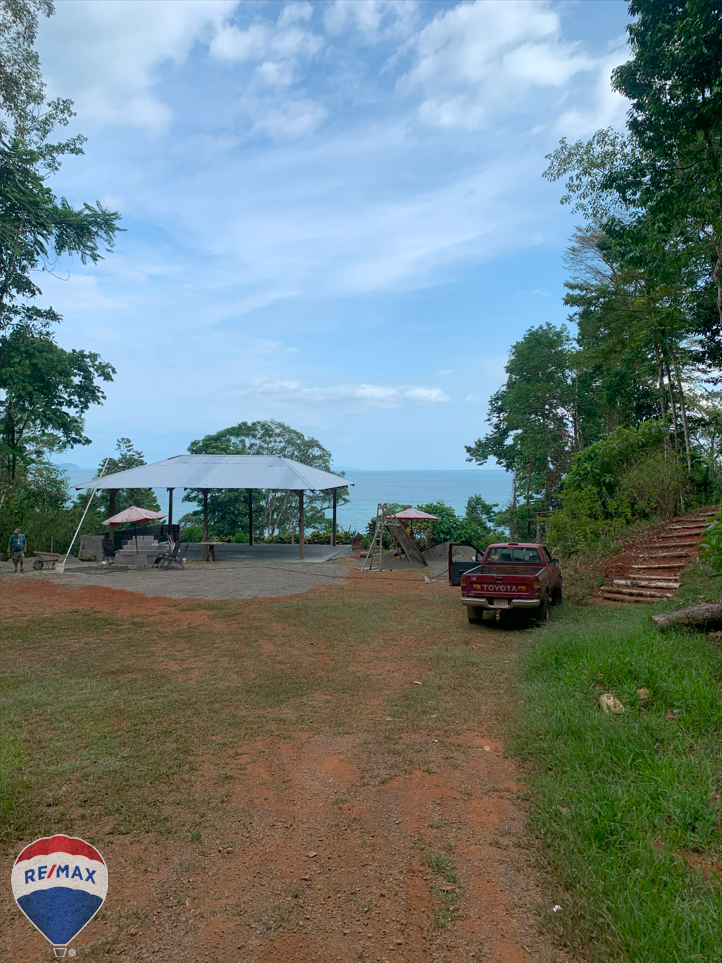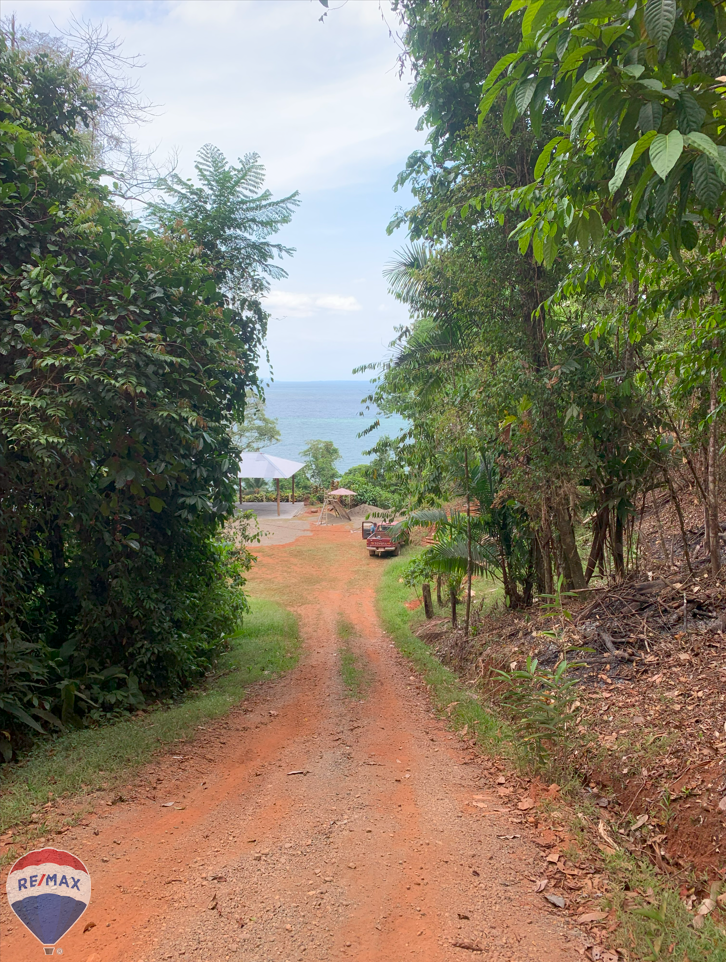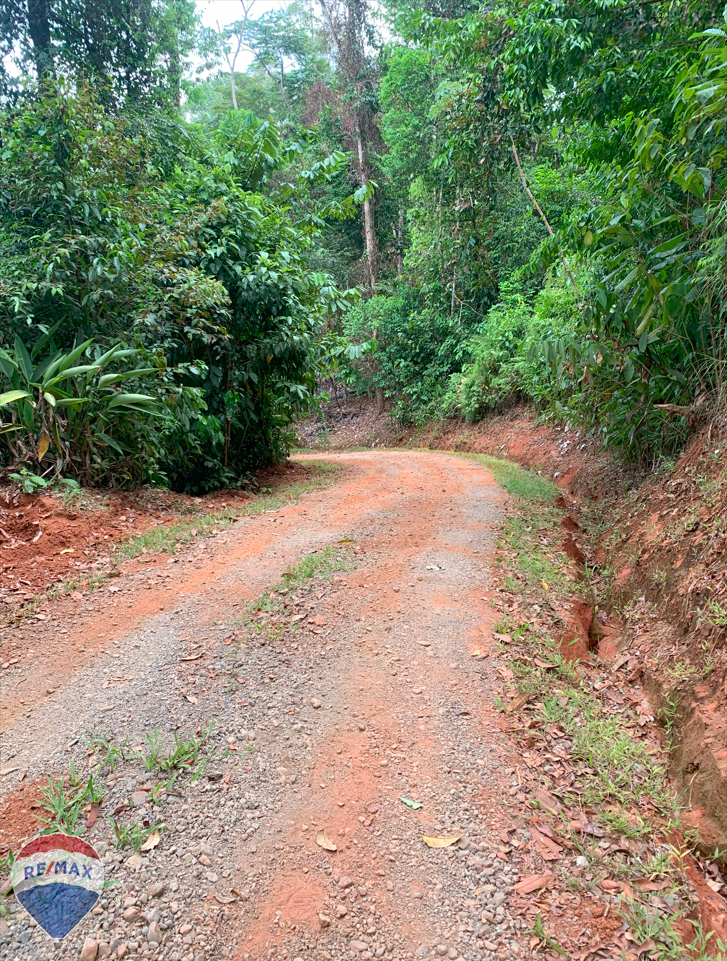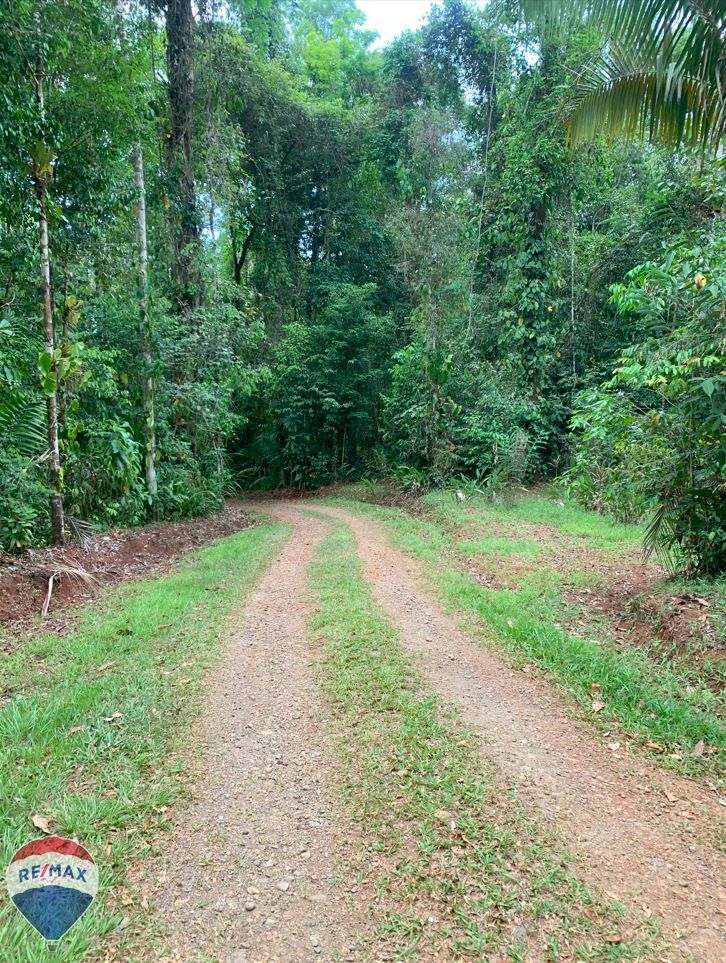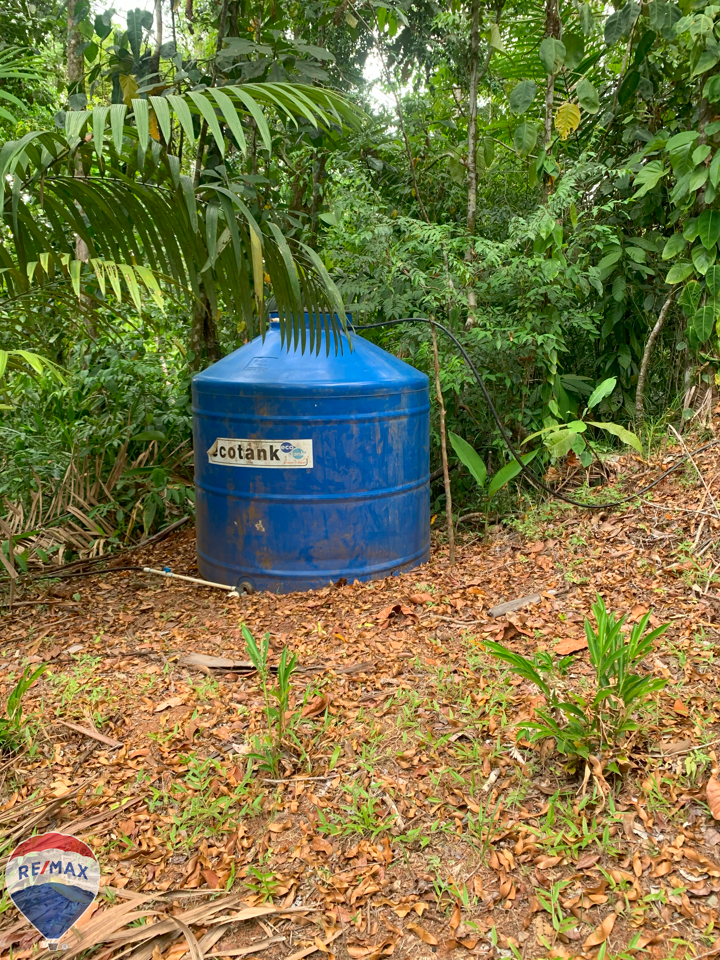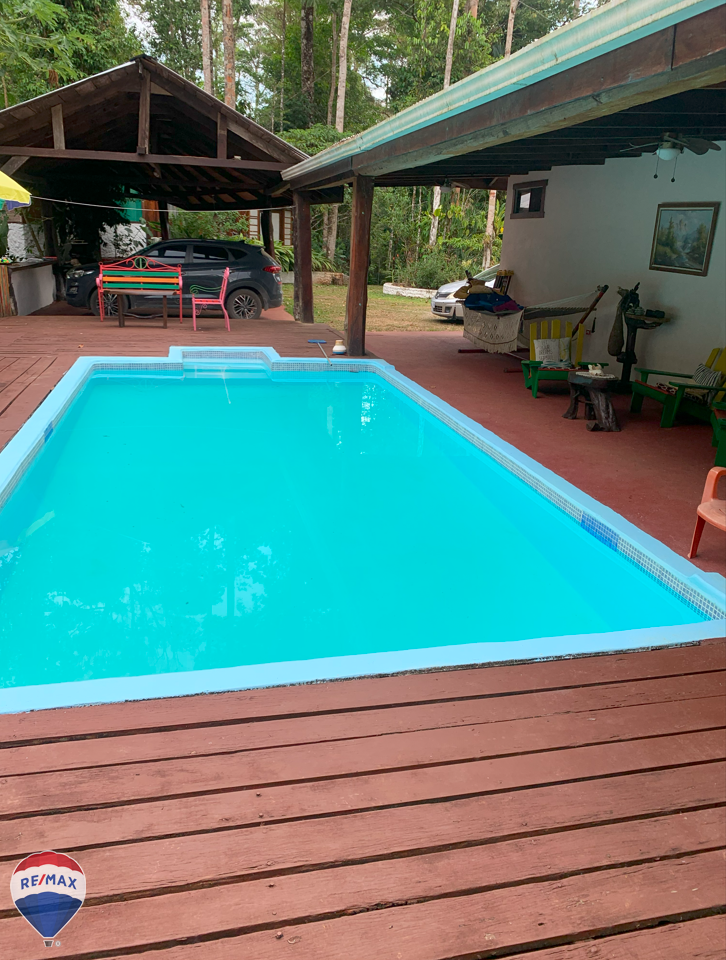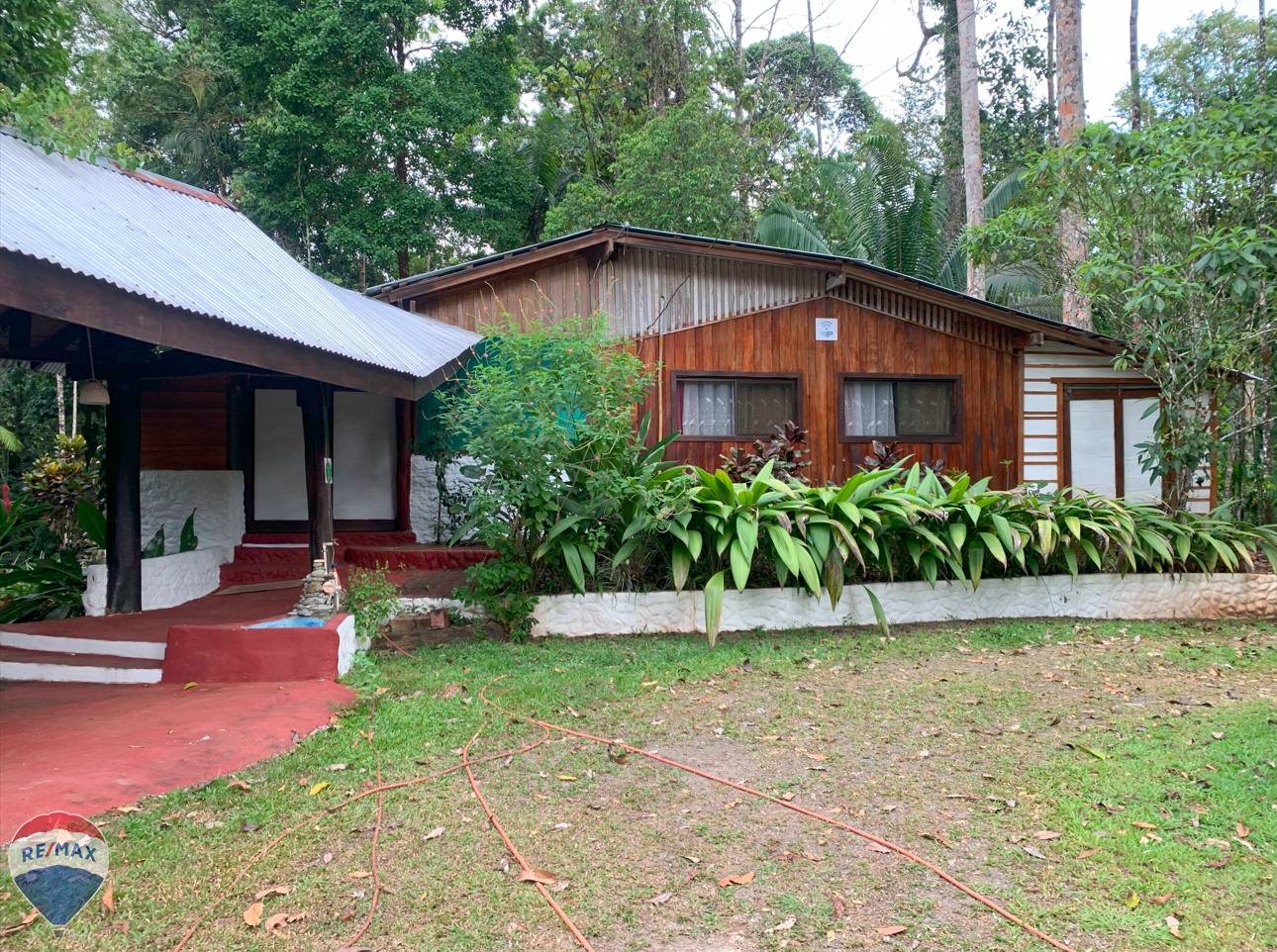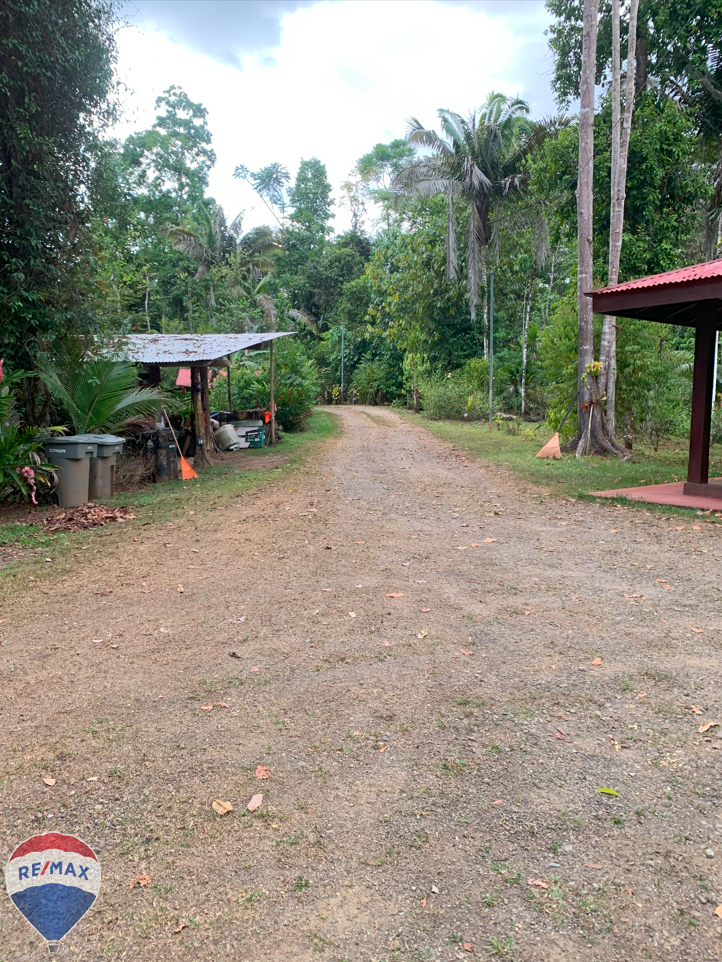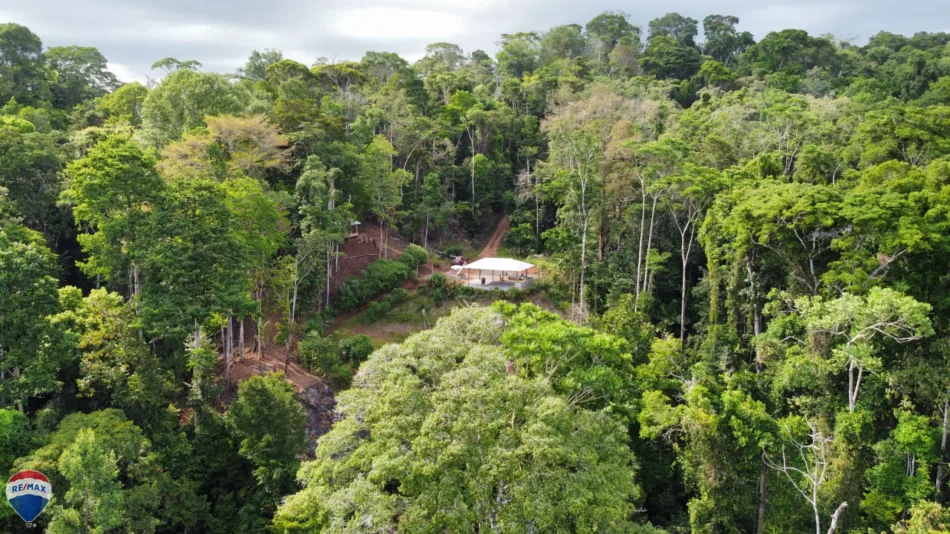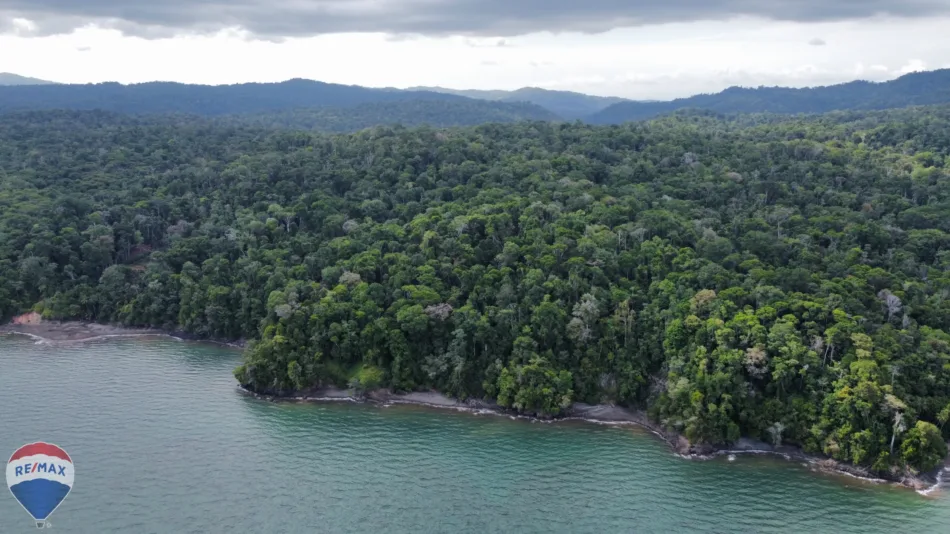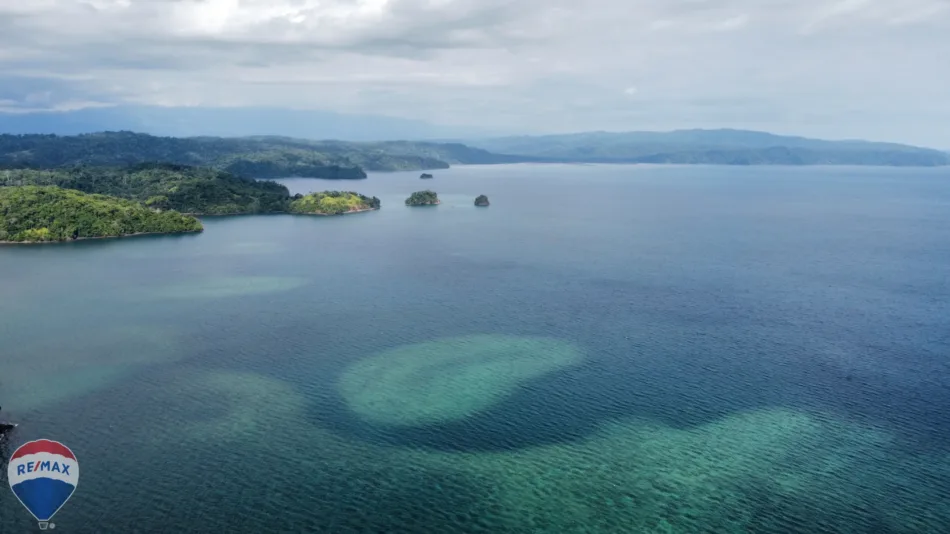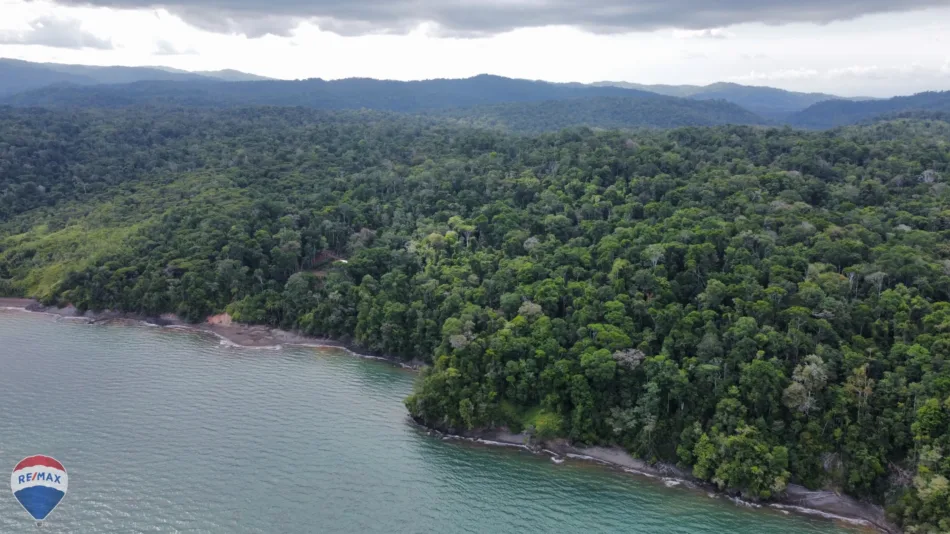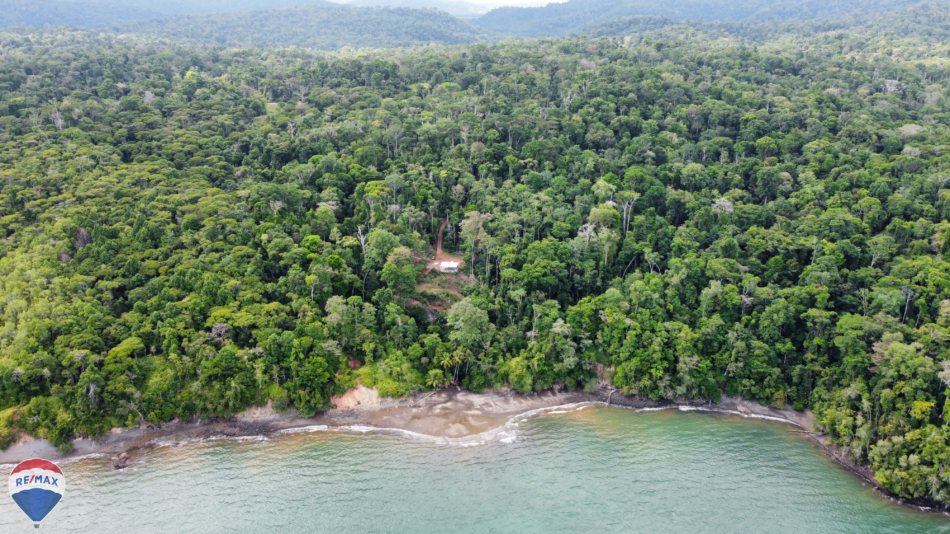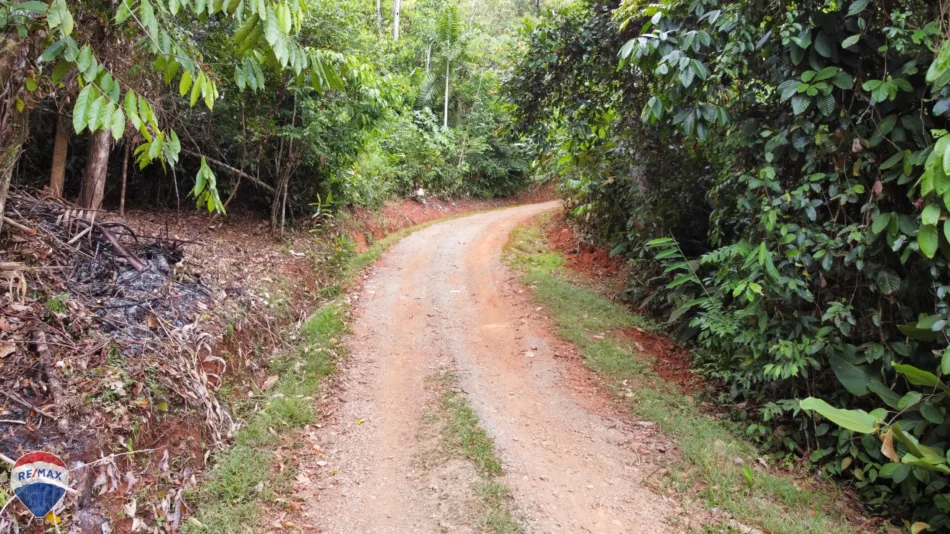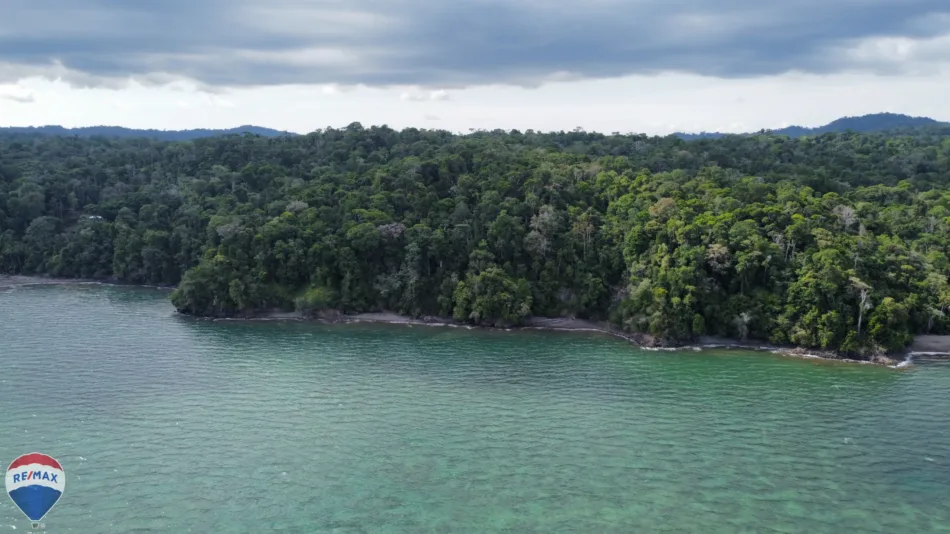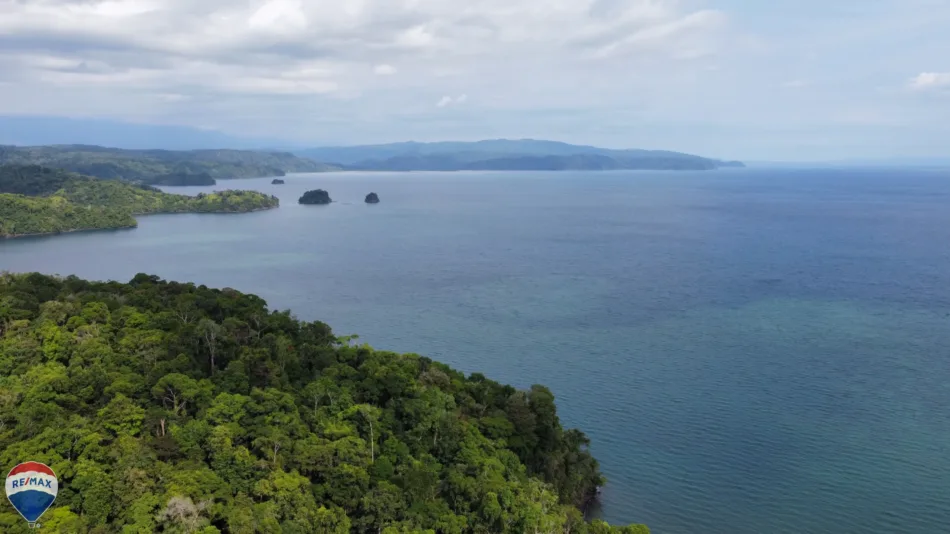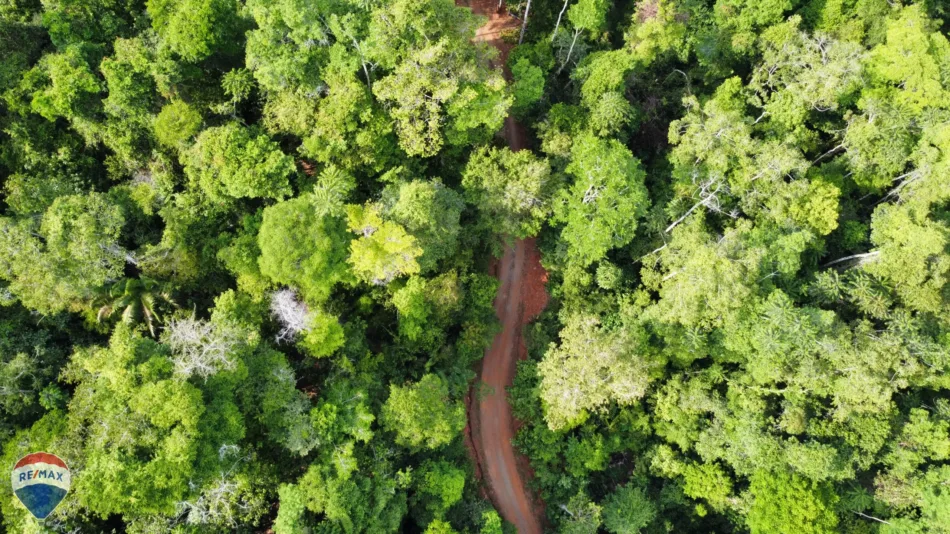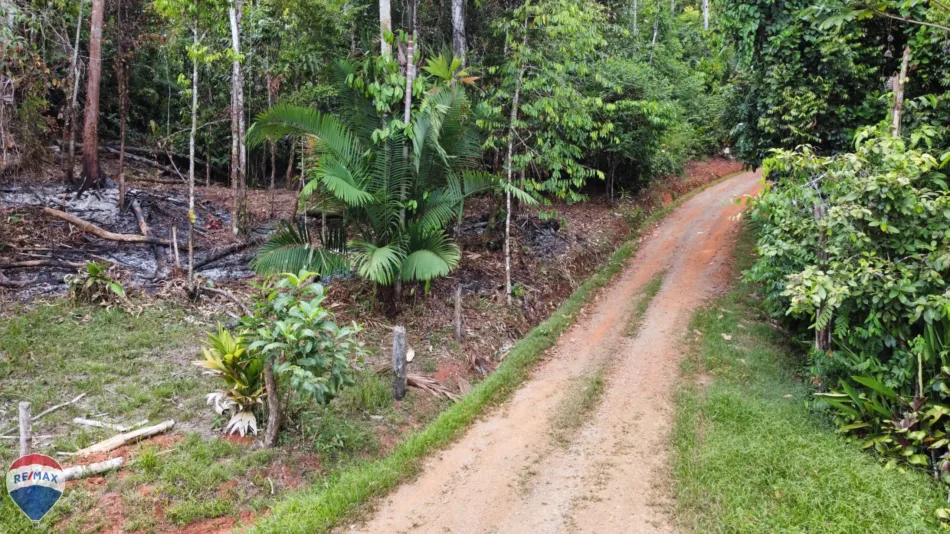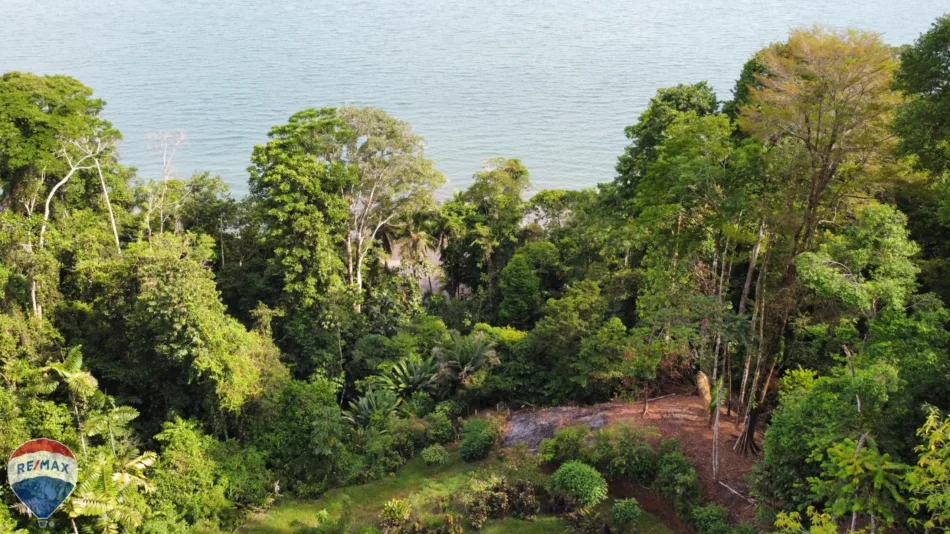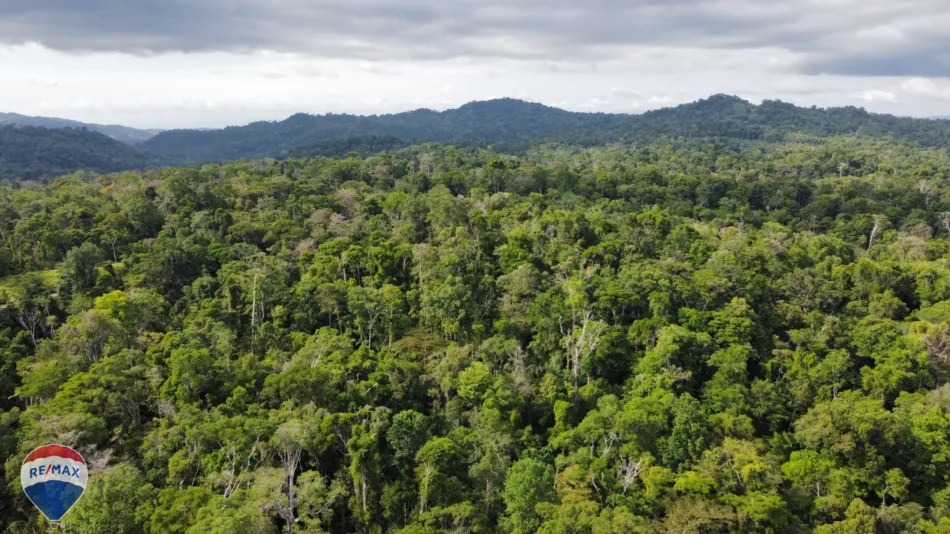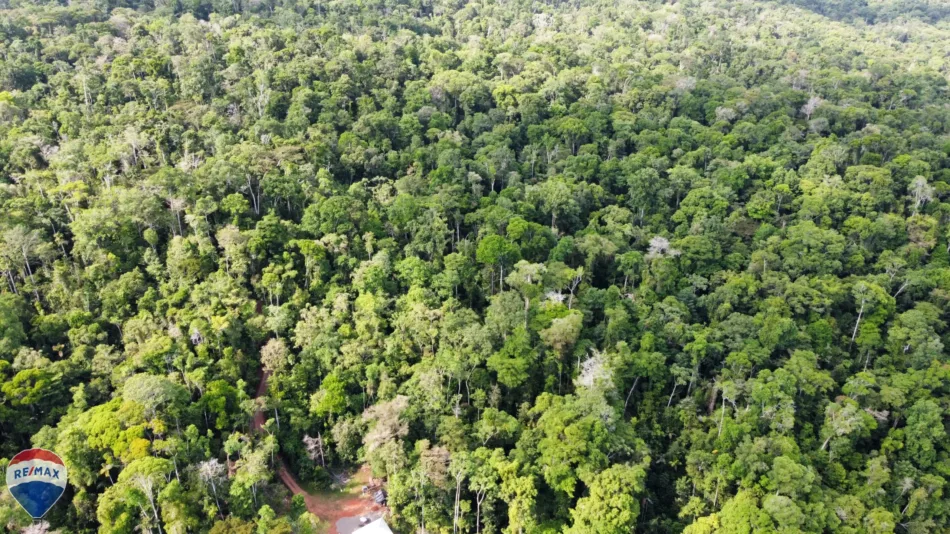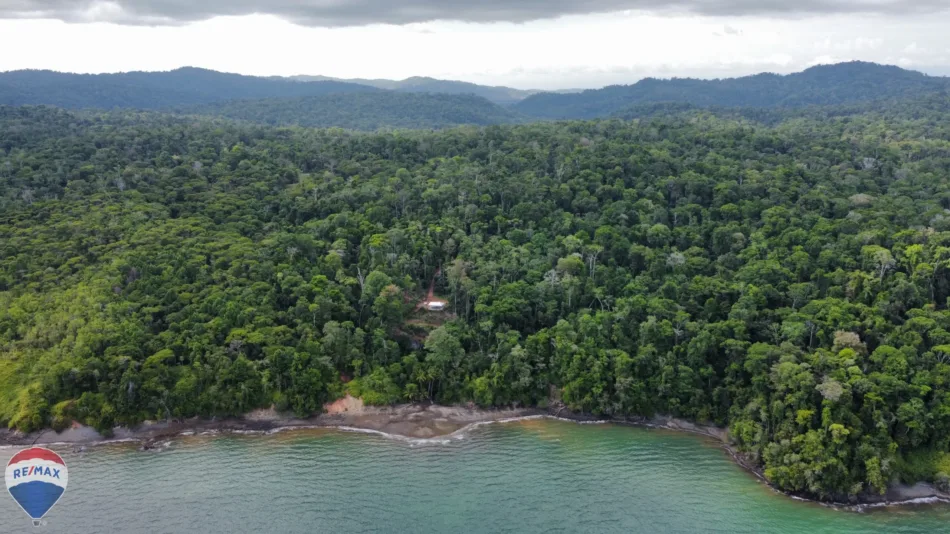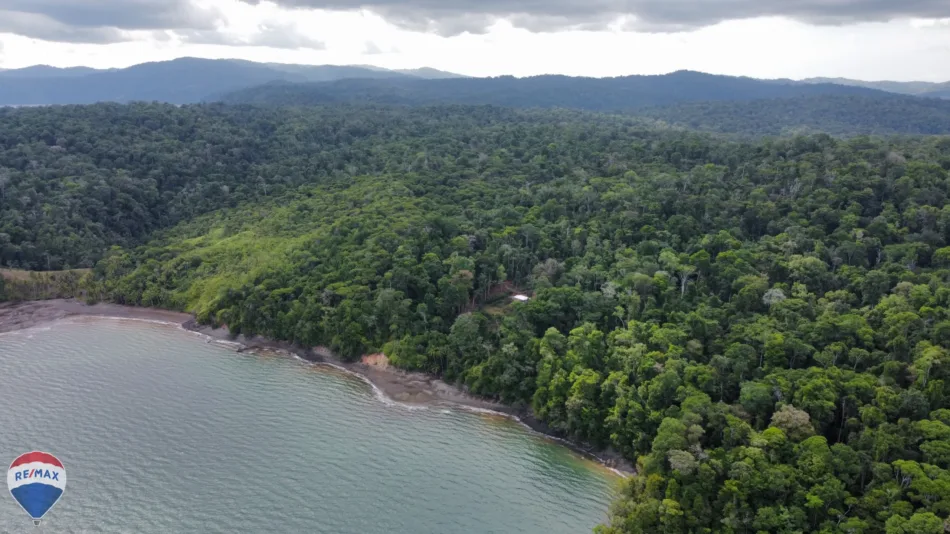Description
Salamoly Lodge sits on the innermost shore of the Golfo Dulce on the southern Pacific coast of Costa Rica, not far from Rincón de Osa. With more than 28 hectares, the property has three houses and a pool that provide income since they could be rented. It has 500 meters of sweet Golfo beach frontage. Places indicated for whale and dolphin watching The forest is tall, multistratal, and evergreen, with a few species that are briefly deciduous, never changing the overall evergreen aspect of the forest.
Tropical forest covers more than 80% of the Golfo Dulce's shore, and the Esquinas River and the Rincón River supply it with fresh water. One of the few places on Earth where both northern and southern humpback whales (Megaptera novaeangliae) congregate is this gulf. These large cetaceans from the Southern Pacific spend their winter months from July to September breeding, giving birth, and caring for their young in the warm waters of Costa Rica’s Southern Pacific shore, many of them choosing the calm, protected waters of the gulf. Scalloped Hammerhead Sharks (Sphyrna lewini) transit through large marine areas, describing migrations from Golfo Dulce to the Galapagos Islands, and there is now evidence of connectivity between a coastal nursery area here and an essential ocean habitat in the iconic Darwin Arch.
This marine habitat also serves as a home to countless species of fish and other cetaceans. Pantropical spotted dolphins and bottle-nosed dolphins inhabit and visit this habitat year-round. The largest reef platform in the gulf is found in front of Salamoly Lodge. It provides great habitat for diverse species of colorful tropical fish, stingrays and sea turtles. Mission Blue, a network of marine protected areas run by scientist Sylvia Earle, designated the waters off the Osa Peninsula as a "Hope Spot" due to their abundance of marine life.
Three small islets known as “Los Mogos” sit 2.5 km east of Salamoly Lodge; they add magnificent scenic beauty to the Gulf, and a reef platform also circles this tiny and unique archipelago.
The privileged location of the Salamoly, in the proximity of Corcovado National Park in the Osa Peninsula, produces an amazing diversity of species of flora and fauna. Approximately 5% of the world’s biodiversity is found in Costa Rica, and 2.5% solely in the Osa Peninsula. These numbers strongly support the reason for National Geographic to refer to the Osa as “the most biologically intense place on Earth.” More than 400 species of birds inhabit this region, including forests, semi-open and open areas, and mangroves; 306 species of these have been recorded within Finca Santa María. The proximity to the rich Piedras Blancas National Park and the great forest connectivity with it enhance the diversity of the finca as well.
The endangered species Yellow-billed Cotinga (Carpodectes antoniae) relies on the mangrove forests at the river mouths of the Rincón and Esquinas Rivers and the pristine gulf’s shore. The population might follow contiguous gallery forests along the tributaries, sometimes a good distance upstream, but generally these cotingas favor the mangroves or adjacent shoreline.
The Costa Rican endemic Black-cheeked Ant-Tanager (Habia atrimaxillaris) inhabits the mature forest of Finca Santa María and also the nearby forests of the Osa Peninsula, Piedras Blancas National Park, and the gulf’s shore in between.
listing details
- Listing ID: 400032981005
- Property type: House/Villa
- Contract type: For Sale
- Price: $ 3,500,000.00
- Construction size: 280,000.00 Sq. Mt.

